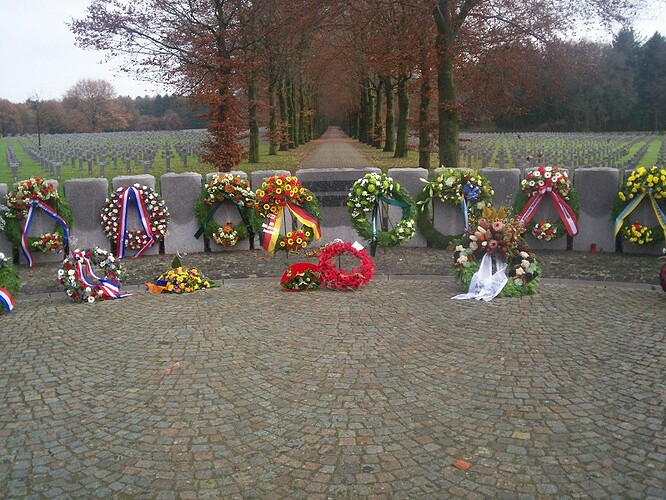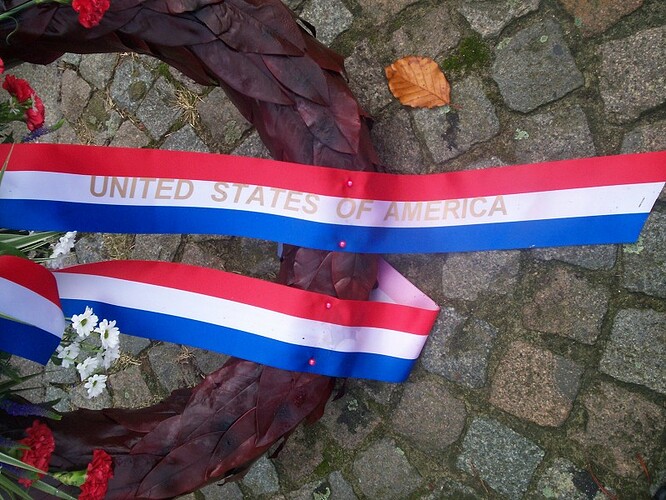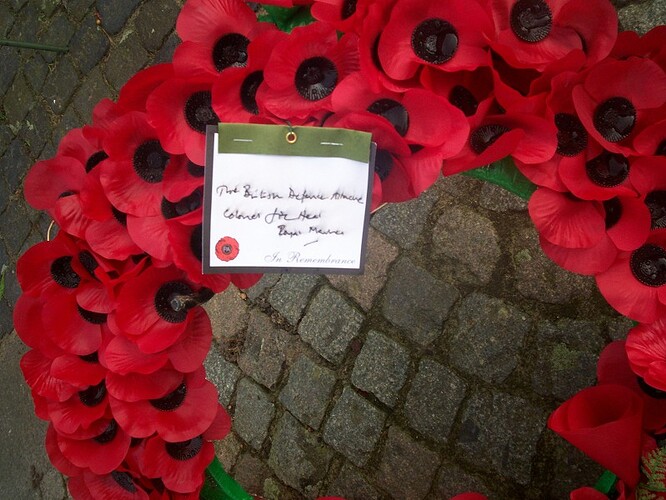June 7, 2008
German war dead no one wants to remember

Steel helmets from German soldiers killed on the Eastern Front: about 2.6 million died in the last phase of the war
Roger Boyes in Berlin
It has been a long, troubled journey for the brittle bones and skull of Obergefreiter Horst F, from the dusty frontline ditch where he was killed in 1945, via a Czech lavatory fittings factory to a military warehouse. Soon, though, he and more than 4,000 German soldiers will be laid to rest: Europe’s forgotten warriors, the corpses that no one wants to bury.
If the the luck of the German lance corporal holds, he will have not only a priest but also a civil servant at his graveside; and if the German War Graves Commission can trace the family in time, there may even be a distant relative. But one thing is for sure: it will not be the funeral of a war hero. More likely, the president of the war graves commission, Reinhard Fuehrer, will say similar words to those he used a few years back when he buried a thousand German Wehrmacht corpses in Krasnodar, southern Russia: “We are here today to represent the German people that has learnt its lesson from history and is now looking to the future.”
Unfinished business: that is the only way to describe the tens of thousands of German corpses rotting in distant fields of Eastern Europe. There are conflicting estimates over the number of German military war dead. German historian Wolfram Wette calculates that about 5.3 million German soldiers lost their lives in the Second World War.” Out of that number about 2.6 million were killed in the last phase between July 1944 and May 1945.” The Red Army was moving up fast from the east, rushing for Berlin, eager to establish a military presence in a huge swathe of Eastern Europe.
There was no time for the Germans to bury the dead as one defensive line after another crumbled. And after the war there was no great incentive to dig holes or to carve crosses for the remnants of an army that had been part of Hitler’s oppressive machine. So their coal-scuttle helmets, mangled weapons and badges were plundered by local teenagers and they were left to decay in woods, under bracken or crunched up by digger trucks as they moved in to build high rise blocks for the new communist societies.
“We are very relieved that agreement has been reached,” says Fritz Kirchmeier, of the war graves commission. The small Czech town of Cheb – custard-coloured Habsburgian buildings fringed by brothels and clip joints for cross-border German tourists – has agreed to expand its graveyard to take in the 4,300 bodies that have been on tour for the past 63 years. “We can give names to 1,350 of them,” says Mr Kirchmeier, “and a decent resting place.” Many German civilians must have been among the dead, killed by vengeful Czechs as they tried to flee westwards away from the Russians. At least 200 of the powdery skeletons were dug out of a mass grave hidden underneath the sports field of the Czech town of Rovensko; immediately after the war the local authorities had set up an internment camp for Sudeten Germans there.
So, no, this is not a heroic moment, not even a historic reckoning. The bodies started to be exhumed about ten years ago – the collapse of communism made it possible; so did the need of local authorities for an influx of Western cash. Cheb will receive several hundred thousand euros to enlarge its graveyard and build an approach road to the church. The original plan of the Germans was to bury their dead in a German evangelical church in Prague but that proved too expensive. The church is listed and millions of euros would have had to flow to make it acceptable for the bureaucracy. The fact is Prague was not keen to take on four thousand dead Germans, especially as some of the dead could have been members of the Waffen SS.
Sealed unceremonoiusly in black body bags, the remains of the Germans were then deposited in a cheerless factory specialising in lavatory bowls and bathroom fittings in Usti nad Labem, the Czech end of the Elbe river. There was no lock on the door – and no telling whether any of the bags were removed by looting locals. Eventually, the Germans got wind of the dismal setting and pressed the Czechs to act. The Czech Army – now a Nato partner – poured the remains into more dignified cardboard coffins, held together by staples, and transferred them to a military barracks where they are at least kept under guard.
“It may take a little time to complete the landscaping of the new cemetery but it is a realistic aim to have everyone buried by the end of the year,” says Mr Kirchmeier.
Across Eastern Europe there are German bodies held in a similar state of limbo. The battle for Berlin, from mid-April to surrender at the beginning of May 1945, claimed more than 400,000 German soldiers. Only a small fraction of them were buried properly. The Germans blame the communist authorities, in East Germany, Poland and elsewhere, who officially venerated the heroic Soviet war dead with massive concrete monuments, but who were not bothered by the fate of those who fought on the losing side.
But at least part of the blame rests with the Germans themselves who have been ashamed for the best part of half a century about the ordinary German soldier, unsure whether he was a hero or a criminal. “In the records of the Wehrmacht the average Joe tends to exist only in anonymous form, a statistic,” says Dr Wette, "the logs of military units generally make no mention of enlisted men by name and the same applies to regimental histories written after the war.” Barely 1 per cent of the holdings of the German military archives in Freiburg deals with enlisted soldiers.
Little wonder that they have been ignored in death - they had already been airbrushed out of history by the Germans themselves. There is no equivalent to the tomb of the unknown soldier under the Arc de Triomphe in Paris or the Cenotaph in London. Instead, villages put up small monuments to those who died “in war and dictatorship, 1914-45” and sometimes the names of locals are etched into the side. But more often than not families do not know where their relatives died or where they now lie.
Thanks to the lobbying work and fundraising of the German War Graves Commission there are now 20 German military cemeteries in Russia, still too few to accomodate the hundreds of thousands of soldiers who died in epic encounters like the Siege of Leningrad. Search teams still go out during the summer. German soldiers, on active service or in reserve units, travel to Russia and elsewhere to help.
Archaeology is about the search for lost civilisations. The search for German remains is something else: an attempt to recover the memory of how savage war can be and then put the memory to rest.
Military casualties
Army estimated 13,600,000 served; estimated 4,202,000 killed
Air force estimated 2,500,000 served; estimated 433,000 killed
Navy estimated 1,200,000 served; estimated 138,000 killed
Waffen SS estimated 900,000 served; estimated 314,000 killed
1,419,728 estimated number of German troops killed or wounded on the Eastern Front




